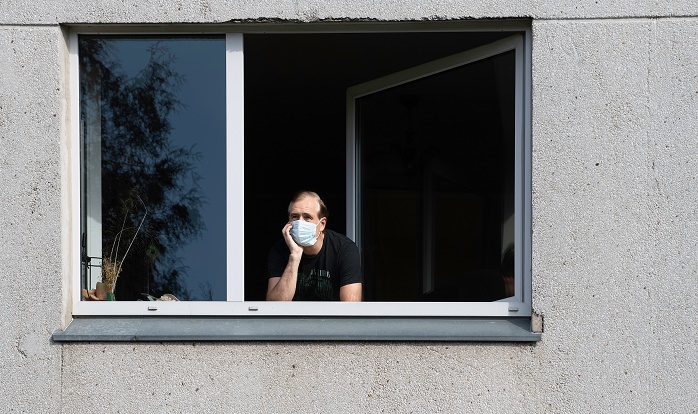
Muscat: People are taking up unhealthy habits such as comfort eating and panic buying to escape from the impact COVID-19 has had on their mental health, in the form of stress, depression, trouble sleeping, and anxiety, say doctors in the country.
One among three of the 1,580 locals and expatriates surveyed to examine the impact of COVID-19, and the measures taken to limit its spread, are shown to suffer from these symptoms.
According to Dr Badr bin Ali Al Habsi, the director of Al Massarah Hospital, the psychological factors of COVID-19 on people’s wellbeing cannot be ignored.
“While most research during the pandemic has focused on complications the virus creates in the respiratory system and other aspects of a person’s health, there are few studies that deal with the direct impact of COVID-19 on mental health,” explained the physician.
“We’ve seen that cases of anxiety and depression – which are consistent with post-traumatic stress disorder (PTSD) – have gone up from 48 per cent to 51 per cent of people,” he said. “The impact of the virus on isolated and infected people is one of the most important matters to highlight.”
Adding to this, Dr H Hamed bin Nasser Al Sinawi, a senior consultant in behavioural medicine at Sultan Qaboos University Hospital, said people who have good mental health are more likely to be more resistant to the virus, because of the effect a positive mentality has on people’s physical wellbeing.
“Among the consequences that we saw, primarily due to the closure of stores, was concerning behaviour such as panic buying of essential goods and hoarding foodstuff,” he explained. “Some people also suffered from obsessive-compulsive disorders such as excessively washing their hands, avoiding contact with others, and refusing to leave home even when movement restrictions were not in place.
“This is very bad for people’s mental health,” Al Sinawi added. “Some people have taken to comfort eating, which is when people consume large amounts of foods are rich in carbohydrates, such as cakes, sweets, and chocolate. This leads to weight gain and obesity, particularly in the light of people being unable to, or not going out of the house to exercise. Some families have also seen increases in cases of domestic violence.”
Dr Nada bint Abdullah Al Balushi, a specialist physician at Al Massarah, explained that women under the age of 40 are more prone to mental disorders, because of the nature of the female gender, which makes women in general more vulnerable to depression and anxiety.
“People who also suffer from chronic health problems and believe fake rumours about the pandemic that are flying around also increase the risk of mental disorders,” she said.
“Several studies have indicated that quarantine also makes people likely to have anxiety, depression, and high levels of anger, particularly after they are required to be in extended social isolation for more than a week.”
In a statement to Oman News Agency (ONA), Dr Ahmed bin Mohammed Al Saidi, the Minister of Health, said he deeply regretted the unwillingness of some people to being vaccinated with the AstraZeneca shot, adding that the country would not provide to its people any vaccine or medicine unless it was sure it was safe for everyone.
His advice came after doctors urged people to take the vaccine to bring about a quicker end to the measures that have been installed to reverse the spread of the virus.
“Oman and many countries of the world have so far not recorded in its recipients any of the side effects associated with the vaccine,” he said. “I call on people in the country, whether citizens, residents, or employees in the health sector, to turn to vaccination and make use of the available vaccine.”